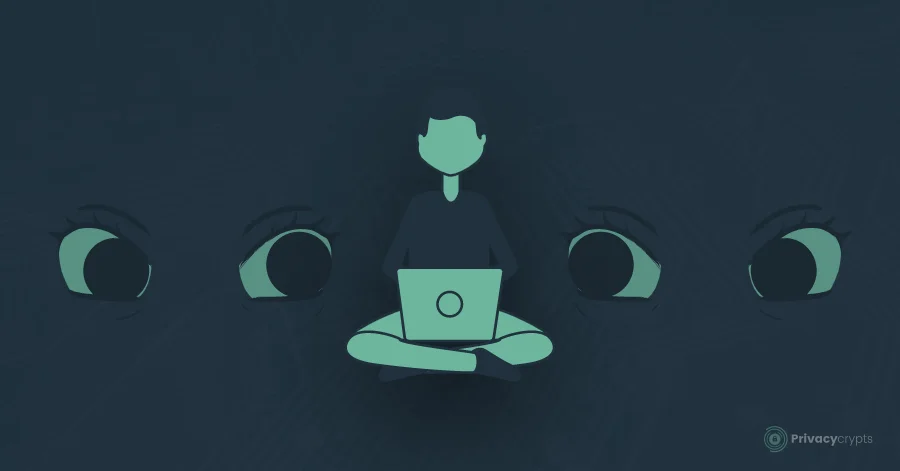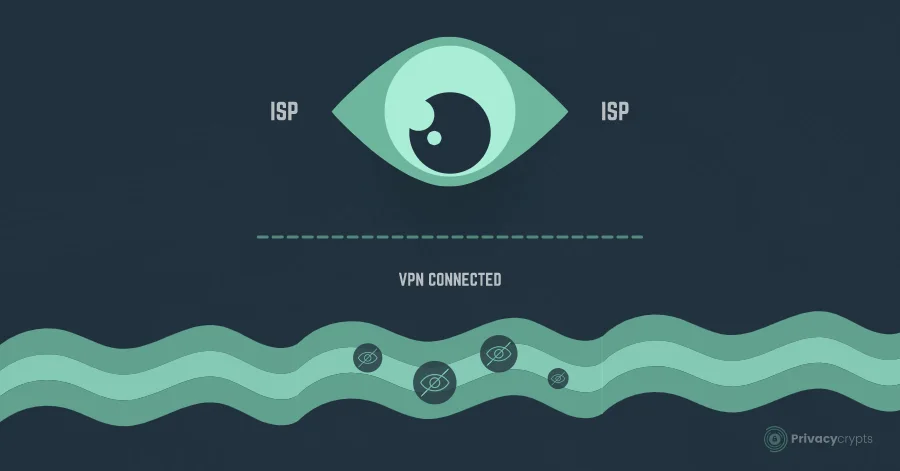ISP tracking is a common practice by which they gather a lot of information about you and your online activities. Though there are various reasons behind ISP surveillance, it risks your digital privacy and security and needs to be stopped.
The best efficient solution to prevent ISPs from invading your online activities is to use a reliable VPN provider. Using a VPN is an excellent way to browse the web anonymously and privately. But the question is, do ISPs see VPN traffic or not?
What Does Your ISP Can See When Not Using a VPN?
Everything you do on the internet is known to your ISP. They record your online data in adherence to specific data retention laws and regulations. However, by gathering a massive amount of data about your browsing activities, the ISP, in turn, violates your right to maintain online privacy. Here’s the list of things that your ISP can view while you browse the web without taking any security measures:
- Websites visited
- Passwords
- Content downloaded
- Cookies
- Connection timestamp
- Browsing sessions
- Search intents
- IP address
Since all the information that your ISPs collect is personally identifiable and you are unaware of what really ISPs do with this data, you are right to feel anxious. However, if you are keen on protecting your online privacy, you can always opt for a reliable VPN provider.
How Does a VPN Hide You From Your ISP?

A VPN is the best available privacy-boosting software that protects you from all snooping eyes and ensures that you surf the web with complete anonymity. When you use a VPN so, it hides your online identity and activities from the ISP in the following two ways:
- A VPN masks your actual IP address and replaces it with the VPN server’s one. Since your IP address is your online identity, masking it can help ensure online anonymity.
- A VPN also encrypts your data traffic from ends. It uses secure encryption standards and robust tunneling protocols to hide your data from snoopy eyes.
Besides this, a VPN also offers a range of advanced security and privacy-boosting features that ensures the ISP won’t invade your digital privacy. This way, a VPN provides a top-notch level of online protection on the internet.
What Does Your ISP Can See While Connected to a VPN?
When connected to a VPN, your ISP knows that you’re using a VPN. The ISP uses the deep packet inspection technique to detect the VPN traffic. Using this technique, they can view the encrypted packets with all your data traffic, but the good thing is that they won’t detect what’s inside the encrypted packets. Other than this, here’s a look at things that your ISP can see while connected to a VPN:
- The IP you’re using is different from the IP assigned by the ISP. The ISP detects that you’re connected to some remote VPN server by seeing the VPN IP’s address.
- The ISP can monitor the port number and recognize that you’re connected to a specific port used by a VPN.
- The ISP notices the secure VPN protocols and knows that you’re using a VPN. Still, since the protocol uses robust algorithms and encryption, it’s not easy to have some information about the users’ online activities.
- The ISP can view your connection logs whether you’re using a VPN or not. It means that they know when you and for how much time you log on to a particular site. But with a VPN, they won’t be able to know which websites you accessed and what stuff you’ve downloaded.
Your ISP can see that you’re connected to a VPN, but they don’t have any idea about your online identity or the activities you’re involved in. A VPN ensures that all your information is encrypted from both ends, and no one can break it without having decryption keys.
What Information Does a VPN Hide From the ISP?
Because of strong encryption, there are some things that your ISP won’t know while you use a VPN. Here’s an insight into the things that a VPN successfully hide from the ISP and boosts your online security:
- With a VPN, the ISP won’t be able to see your actual IP address and thus remains unaware of your true identity and from where you’re browsing the web from.
- The ISPs can view your web traffic but have no idea about the websites you visited or what you are searching for.
- The amount of bandwidth you consume can give the service provider a slight idea about your online activities. But they can’t see how much you’ve downloaded and what exactly you download.
- As all your information is encrypted, your ISP won’t read it and recognize your online activities.
With hiding such information from your ISPs you can enjoy ultimate online anonymity and privacy online without the paranoia of anyone snooping on your activity.
Features to Look For In a VPN to Prevent ISP from Seeing Your Activities
A VPN uses various features to achieve maximum anonymity and protection. The VPN features vary from one another; not all VPNs will give the same level of service and performance. Thus, you can’t use any VPN and need to look for certain things that the VPN should have.
Below is an insight into the features that a reliable VPN should have to prevent ISP tracking:
- Make sure that the VPN you use follows a strict zero-logging policy. These VPN providers don’t keep your IP address, browsing data, or connection logs that can later reveal your true identity. Even if the ISP or the higher authorities ask them to hand over the users’ data, they don’t because they don’t record any data.
- Do check the encryption standards and protocols used by a VPN. It should offer a not-notch level of security and online protection to the users. The best VPN uses AES-256 bit encryption and a range of secure tunneling protocols like OpenVPN and WireGuard protocol to safeguard users’ data from all prying eyes.
- Ensure that the VPN offers various security and privacy-focused features that further take your digital security to the next level. Hence, look out for features like a kill switch, split tunneling, and IP leak protection. These features protect your IP address from leaking and ensure that the ISP doesn’t learn about your real identity and activities.
- The VPN should have an extensive server network along with unlimited bandwidth. A VPN with a vast server network ensures quick connection and allows users to enjoy their favorite activities like streaming, gaming, and torrenting with ultra-fast speed without worrying about ISP surveillance.
Ensure that the VPN you use is trustworthy and has all the features mentioned above. It’s recommended not to use a VPN you’re unsure about or only offer a free plan.
Final Thoughts
To conclude, you use a VPN to protect your digital identity and want to browse the internet with complete freedom. Even though your ISP knows that you’re using a VPN, it doesn’t impact your online security. The ISP won’t know which VPN service you’re using or your real identity. So, always use a VPN before browsing the web and stop ISP and other snooping eyes from invading your online privacy.
